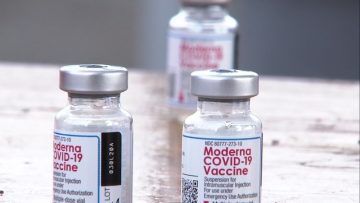
British regulators approved the deliberate COVID-19 infections of unvaccinated volunteers. The reason? To determine the smallest amount of virus needed for an infection.
The scientists conducting this study hope to eventually infect vaccinated volunteers with COVID to test the efficacy of different vaccines. The initial infection of unvaccinated volunteers gives the researchers an idea of how much virus is needed to reliably infect people.
By deliberately infecting people, testing the efficacy of vaccines becomes much easier. Without deliberate infections, many more volunteers will have to be recruited to take a vaccine. Then researchers have to wait months to see whether the vaccine is effective or not. In theory, conducting smaller scale vaccine trials with voluntary infections could reduce the time and resources needed.
This comes at the cost of exposing perfectly healthy people to a potentially deadly virus. Researcher minimize the risk by only allowing healthy volunteers aged 18-30 who are highly unlikely to develop severe symptoms of COVID.
The problem with this study is that it intentionally limits the age demographic. While the vaccine may work on participants in the 18-30 age range, it does not mean that it will work for the older generation.
When asked about his opinion on the matter, Junior Andrew Z. said, “I think that this new strategy for developing vaccines will prove effective, it may seem unethical or unrealistic but after looking into it a bit more, I think that it seems less out there than it may seem.”
While the United Kingdom has approved of this study, it is unknown whether the researchers will actually conduct the study as the limitations of the study may be severe enough to warrant not doing that study at all.
Furthermore, making a vaccine takes time, and so does making the virus particles needed to infect volunteers. Further limiting the study.